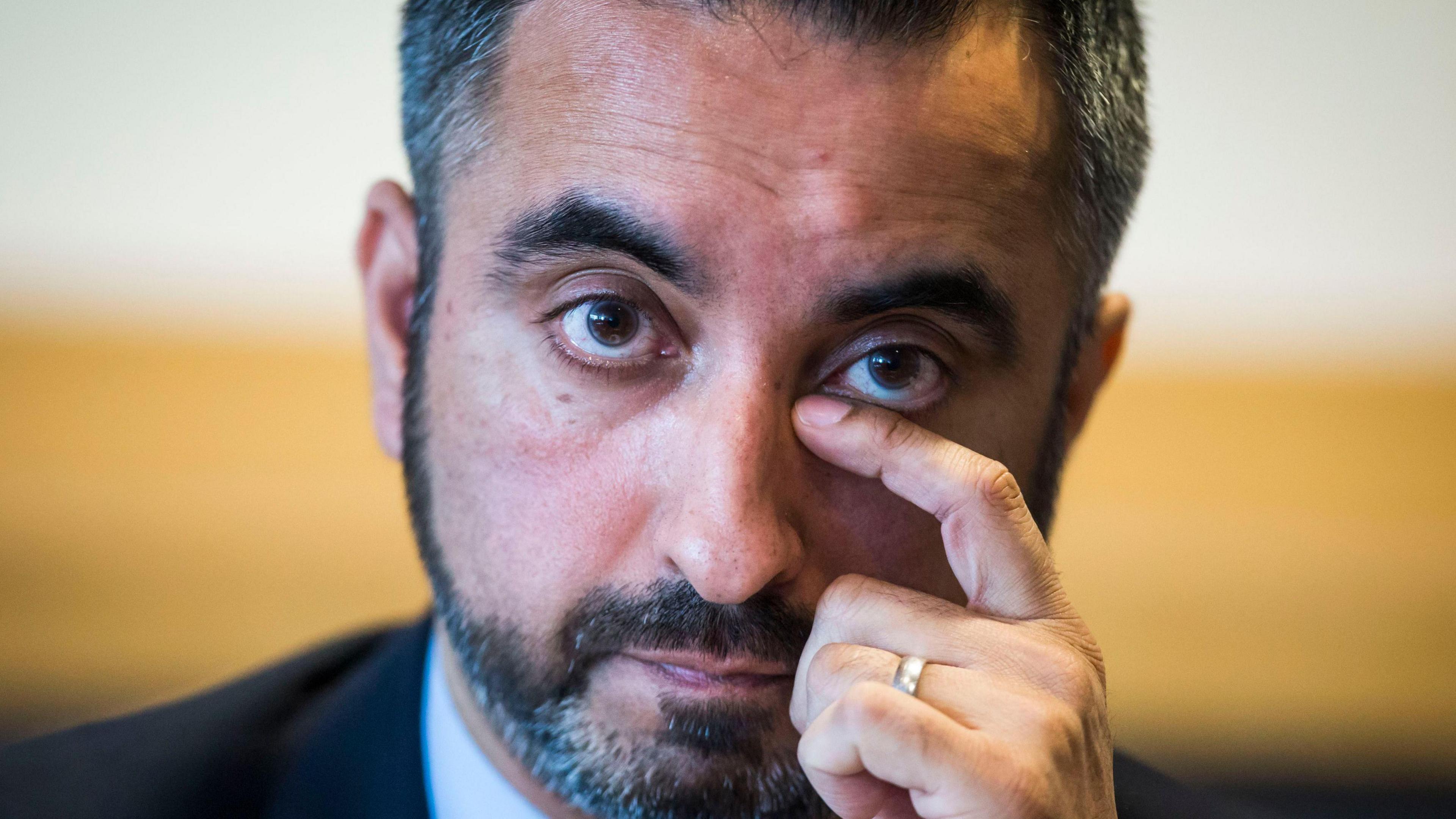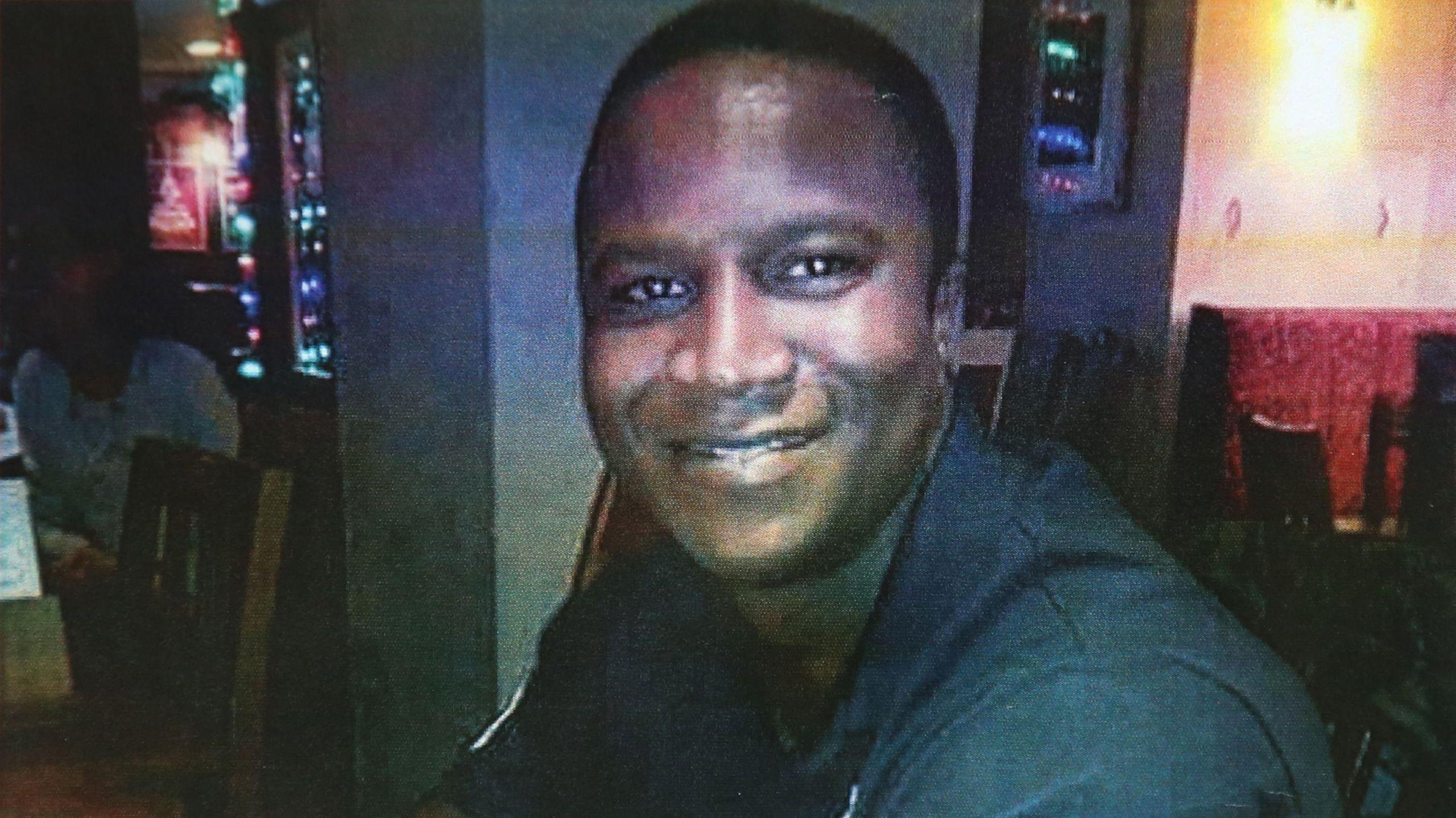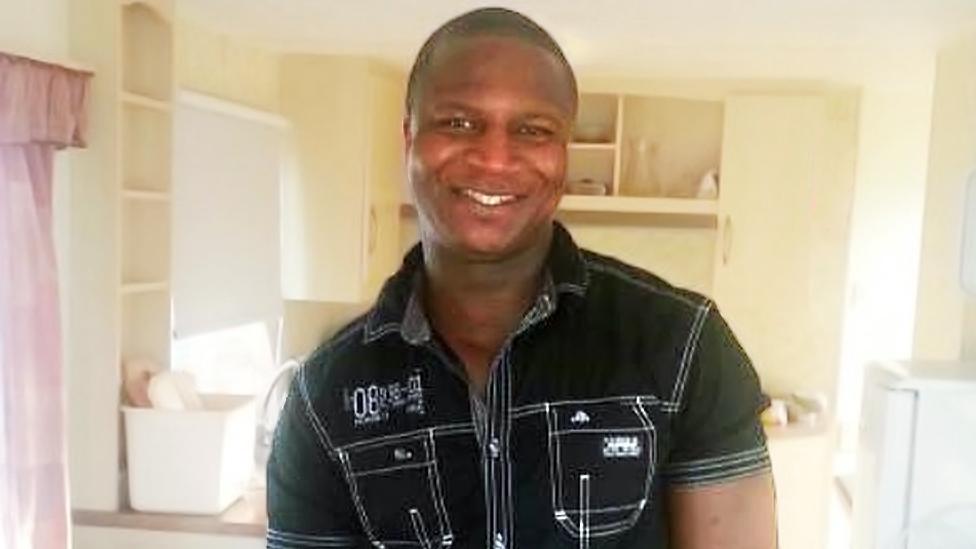Sheku Bayoh lawyer says justice system 'institutionally racist'

Aamer Anwar said criminal justice institutions failed to deliver truth, justice and accountability during the investigation into Sheku Bayoh's death
- Published
The lawyer representing the family of a black man who died in police custody has described Scotland’s criminal justice system as “institutionally racist”.
Aamer Anwar said he initially advised Sheku Bayoh’s relatives to trust the Crown Office and Police Investigations and Review Commissioner (Pirc) in their investigation and not mention race as a factor as they would be “attacked” for doing so.
But Mr Anwar, 56, said the institutions “failed to deliver truth, justice and accountability” during their probes into the 31-year-old’s death following a confrontation with police in Kirkcaldy on 3 May 2015.
A public inquiry is examining the circumstances surrounding his death, how it was investigated and whether race played a factor.

Sheku Bayoh died in police custody in Kirkcaldy in 2015
Mr Anwar, who has been representing Mr Bayoh’s family free of charge for more than four years, said he had suffered a nervous breakdown and had threats made against his life during the case.
He also said he had a panic alarm and CCTV cameras installed in his house after being forced to move due to the fallout.
Mr Anwar and Mr Bayoh’s family launched their campaign for a public inquiry in July 2015, almost three months after his death.
In their initial statement, they said they were seeking responses to “unanswered questions” over his death, but did not question whether Mr Bayoh’s race played a part.
Giving evidence to the inquiry, Mr Anwar said, had he drafted that statement with allegations of racism, “they” would have accused Mr Bayoh’s family and himself of “playing the race card”.
When asked who he meant by “they,” Mr Anwar said: “They are the Crown, the Pirc, the Police and the Scottish Police Federation (SPF) because they all seemed to work hand in hand when it came to the so-called investigation.
“They failed to deliver justice and failed to deliver truth and accountability to the family.
“That is why it becomes ‘they’. The criminal justice system in this country is institutionally racist.”
Mr Bayoh lost consciousness after being restrained by six officers on Hayfield Road on the morning of 3 May 2015.
The father-of-two was under the influence of drugs, was carrying a knife and behaving erratically when members of the public first contacted the police.
However, by the time officers arrived, he was no longer in possession of the knife.
A violent confrontation followed and Mr Bayoh was taken to hospital, where he later died.
'All of a sudden, I am the enemy'
Mr Anwar also accused the SPF of being guilty of institutional racism, adding it was several months before they acknowledged race may have been a factor in Mr Bayoh’s death.
Following a press conference in May 2015, the SPF’s legal representative accused Mr Anwar of making “unhelpful and ill-informed comments” about the case.
Peter Watson was also quoted as saying a female police officer thought she was going to be murdered in the incident and, had other officers not intervened, that would have been the outcome.
Mr Anwar said at the time he was representing police officers in legal cases and had been invited to Scottish Police Federation dinners.
But he said that quickly dried up after he became involved in the case.
He told the inquiry: “All of a sudden, black man dies in police custody, and I am the enemy.”
Asked what personal impact the case had on him, Mr Anwar said he had been “vilified” and subjected to personal abuse.
He said he had to use his own savings to keep his legal firm in business and received “no support” from the wider Scottish legal profession.
The inquiry, before Lord Bracadale in Edinburgh, continues.
Related topics
- Published1 May 2024

- Published14 September 2023
